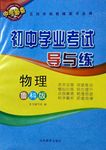题目内容
【题目】The idea of being able to walk on water has long interested humans greatly. Sadly, biological facts prevent us ever accomplishing such a thing without artificial aid---we simply weigh too much, and all our mass pushes down through our relatively small feet, resulting in a lot of pressure that makes us sink.
However, several types of animals can walk on water. One of the most interesting is the common basilisk Basilicus basilicus, a lizard (蜥蜴)native to Central and South America. It can run across water for a distance of several meters, avoiding getting wet by rapidly hitting the water’s surface with its feet. The lizard will take as many as 20 steps per second to keep moving forward. For humans to do this, we,d need huge feet that we could bring up to our ears in order to create adequate w hitting. ’’
But fortunately there is an alternative: cornflour. By adding enough of this common thickening agent to water (and it does take a lot), you can create a “non-Newtonian” liquid that doesn’t behave like normal water. Now, if the surface of the water is hit hard enough, particles(粒子)in the water group together for a moment to make the surface hard. Move quickly enough and put enough force into each step, and you really can walk across the surface of an adequately thick Liquid of cornflour.
Fun though all this may sound, it’s still rather messy and better read about in theory than carried out in practice. If you must do it, then keep the water wings handy in case you start to sink--and take a shower afterward!
【1】Walking on water hasn’t become a reality mainly because humans______.
A. are not interested in it
B. have biological limitations
C. have not invented proper tools
D. are afraid to make an attempt
【2】What do we know about Basilicus basilicus from the passage?
A. It is light enough to walk on water.
B. Its huge feet enable it to stay above water.
C. It can run across water at a certain speed.
D. Its unique skin keeps it from getting wet in water.
【3】What is the function of the cornflour according to the passage?
A. To create a thick liquid.
B. To turn the water into solid.
C. To help the liquid behave normally.
D. To enable the water to move rapidly.
【4】What is the author’s attitude toward the idea of humans’ walking on water?
A. It is risky but beneficial.
B. It is interesting and worth trying.
C. It is crazy and cannot become a reality.
D. It is impractical though theoretically possible.
【答案】
【1】B
【2】C
【3】A
【4】D
【解析】试题分析:人类有一个一直感兴趣但一直未能实现的愿望:水上行走。不能实现的原因是“生物性局限”。本文主要介绍了一种理论上可行实际上难以实现的人类水上行走的方法:借助玉米粉(cornflour)增加水面浓度。
【1】B细节题。从第一段Sadly, biological facts prevent us ever accomplishing such a thing without artificial aid …可知,人类至今不能在水面行走是“生物”原因。选择B。
【2】C细节题。从第二段It can run across water for a distance of several meters, avoiding getting wet by rapidly hitting the water’s surface with its feet.一句可知,这种蜥蜴能在水面行走是因为速度快(每秒钟达到20步)。选择 C。
【3】A细节题。第三段this common thickening agent明确这是一种“常见的增稠剂”。选择A。
【4】D推断题。从第二段it does take a lot,最后一段it’s still rather messy and better read about in theory than carried out in practice. 等句推断,借助增稠剂实现人类在水面行走,理论上可行但真正实现很难做到。选择D项。
【学法指导】
根据文章中提供的一些事实,再加上自己的常识,透过表面可以看到事物的本质,从而做出合理准确的判断。比如第11.小题,推断题。从第二段it does take a lot,最后一段it’s still rather messy and better read about in theory than carried out in practice. 等句推断,借助增稠剂实现人类在水面行走,理论上可行但真正实现很难做到。选择D项。

 七星图书口算速算天天练系列答案
七星图书口算速算天天练系列答案 初中学业考试导与练系列答案
初中学业考试导与练系列答案【题目】根据短文内容,从短文后的选项中选出能填入空白处的最佳选项。选项中有两项为多余选项。Does this situation seem familiar to you? Your English is progressing well, the grammar is now familiar, the reading comprehension is no problem, and you are speaking quite fluently. 【1】First of all, remember that you are not alone. Listening is probably the most difficult job for almost all learners of English as a foreign language. The most important thing is to listen as often as possible. 【2】 The Internet is really a useful tool for English students. You can download The RealPlayer from RealMedia.com. The RealPlayer allows you to use the Internet like a radio station.Once you have begun to listen on a regular basis, you might still be frustrated by limited understanding. 【3】Here is some of the advice I give my students:● Accept the fact that you are not going to understand everything.● Stay relaxed when you do not understand, and try listening to the material for more times.● Do not translate everything into your native language.● 【4】 Don’t concentrate on details before you have understood the main ideas.● Listen to something you enjoy.I remember the problems I had in understanding spoken German when I first went to Germany. In the beginning, when I didn’t understand a word, I insisted on translating it in my mind. This method usually resulted in confusion. 【5】Firstly, translating creates a barrier between the listener and the speaker. Secondly, most people repeat themselves constantly. By remaining calm, I noticed that even if I did not pay much attention I could usually understand what the speaker had said.
A. What should you do? |
B. Listen for the general idea of the conversation. |
C. But you can’t follow a native English speaker at all! |
D. But listening is a problem for most of the beginners! |
E. So, what you need to do is to find listening resources. |
F. However, after several weeks, I got used to the new environment in Germany. |
G .Then, after the first six months, I discovered two extremely important facts.